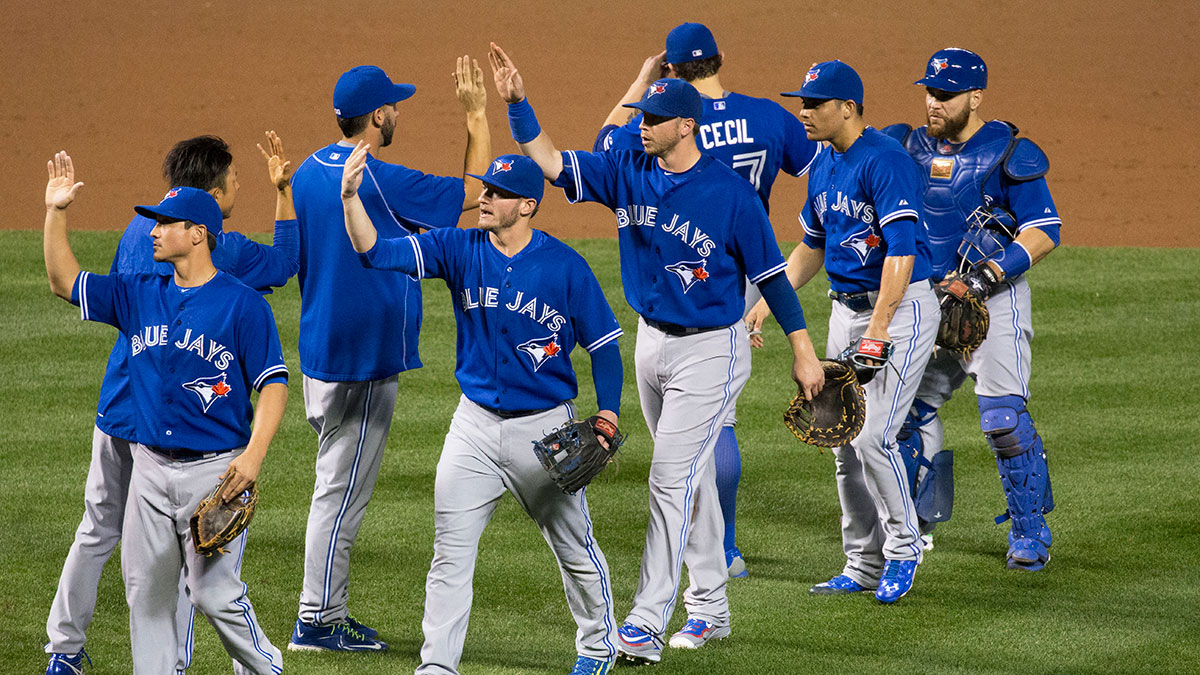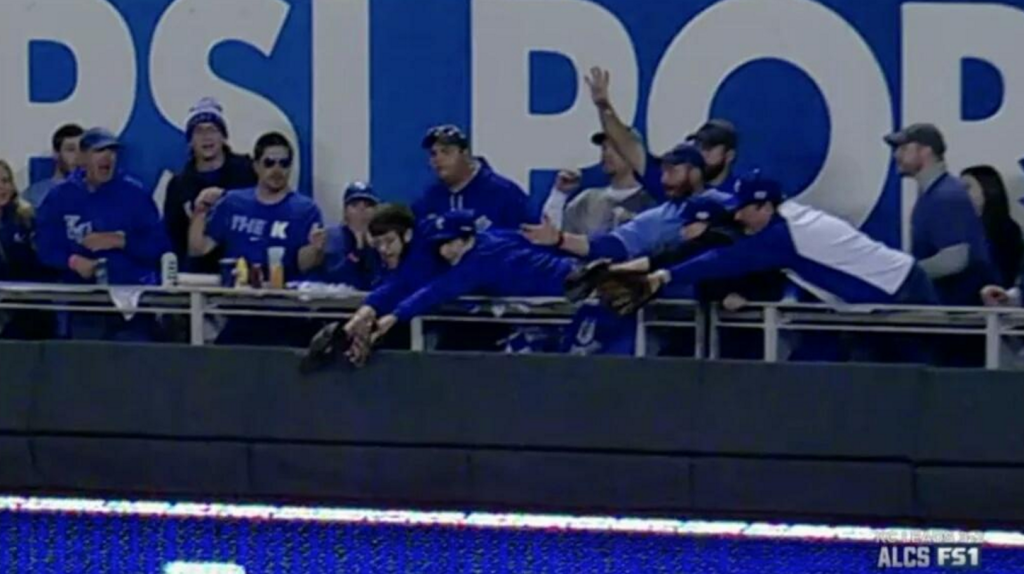What if the Jays hadn’t been burned by two bad strike calls?
 Supplied – Keith Allison
Supplied – Keith AllisonOn Friday night, the Jays were eliminated from playoff contention by the Kansas City Royals after a hard fought sixth game that saw everything from controversial home run calls and late inning heroics, to a very poorly timed rain delay.
The Jays were locked in a great battle with the Royals this game, but they also spent the majority of the game battling the umpires as well.
It started in the second inning, with the Royals already leading 1-0, third baseman Mike Moustakas hit a line shot that looked like it was going to hit off the top of the wall and bounce back into play. However, before the ball could actually hit the wall, a Royals fan reached down to catch it. On first appearances, it looked as if the fan had reached over the wall to catch the ball, so the call went to review. After a lengthy review, the home run stood, and the Royals held a 2-0 lead.

The home run call definitely wasn’t the most egregious call that would go against the Jays on this night — those would come in the fateful ninth inning.
After the Royals promptly took the lead after the rain delay, the Jays had a difficult task ahead of them: scoring a run off Wade Davis, who had posted a 0.94 ERA during the regular season, and hadn’t given up a run in five appearances in the postseason.
The inning looked to get off to a good start for the Jays, as Russell Martin led off with a single, and was immediately replaced by Dalton Pompey as a pinch runner. Pompey did his job, stealing second on the very next pitch, to put himself in scoring position with nobody out. He would eventually steal third a few pitches later, as Davis would end up walking Kevin Pillar, to put runners on first and third with nobody out.


What would’ve happened if the calls had gone the other way though? Of course, nothing is guaranteed, but statistics show that they both would’ve had a much better chance if those two pitches were called balls as opposed to strikes.
The infield was drawn in for the entirety of Navarro and Revere’s at bats, so if either of them had put a ball in play on the ground not hit right at an infielder, chances are Pompey would’ve been able to score with his speed. The infield being drawn in also means that the Royals are selling out for a play at home, giving the runner at the plate additional time to reach first. If Pompey is able to score, chances are, whoever hit the ball would be able to reach first, and the Jays would still be in business in the inning.
Let’s say that Navarro is able to put a ball in play, and the Royals throw home, but can’t nab Pompey at home because of his speed, this means that the game is now tied, and the Jays now have to go-ahead run on third in Pillar, still with no outs. Now Revere comes up, and his 2-1 pitch is called a ball — he’s now in a much more favourable position, as he has the luxury of eliminating anything from Davis that looks like it’s off the plate. If he puts a ball in play, it puts extra pressure on the defence because of both Revere and Pillar’s speed at the plate and on the base paths. There’s a good chance if Revere puts a ball in play from his favourable count, and the Royals again try for the run at home, that the Jays take the lead.
After all this, then you have Josh Donaldson batting with runners on first and second, with a 5-4 lead, and still nobody out. Maybe Davis then gets taken out of the game, and Donaldson faces a less imposing reliever, most likely Luke Hochevar, who had a far less impressive 3.73 ERA during the regular season. Dependent on whether or not the Jays could have tacked on any additional runs, they would have either stuck with Roberto Osuna, or put in Mark Lowe most likely. Osuna had already thrown 24 pitches and given up a run in the eighth, but had proven he was capable of multiple inning saves in the Jays ALDS clinching win against the Texas Rangers, where he went 1.2 innings and threw 34 pitches, striking out four of the five batters he faced. The Royals would’ve sent up their eighth, ninth, and leadoff hitters for their half of the ninth: Alex Gordon, Alex Rios and Alcides Escobar. No easy outs there, but not as imposing a trio as Cain, Hosmer, and Morales, who had all gotten on base against Osuna in the last inning.
Outside of these strike calls, you also have the fact that the umpires also missed a potential Balk by Davis as he quick pitched Navarro. If that balk had been called, the context of the inning changes completely, as you have Pompey automatically scoring from third, and Pillar moving from second to third. After the balk, the game is tied, and Navarro is batting with a man on third and nobody out, with the game now tied. If the balk had been called, the entire infield would have to come in, and Navarro would have a lot more room to squeeze a ball into the outfield, which would have put the Jays ahead.
Assuming the Jays win game six, they then would’ve had a rematch of game three in the series deciding game: Marcus Stroman vs. Johnny Cueto. Given how the Jays torched Cueto for eight earned runs in just two innings in game three, I like the Jays chances in game seven. In the end, those two outside strike calls ended up swinging the game and the series in the Royals’ favour, but they could’ve easily swung the Jays’ way if they were called balls.
All strike zone information courtesy of Brooks Baseball.




